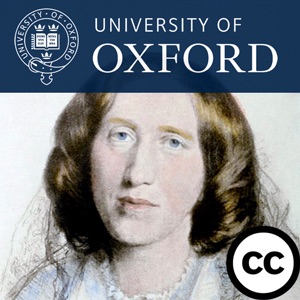
George Eliot
This mini-series is intended to introduce George Eliot to undergraduates. The first lecture ranges widely across her works, including her atypical novella 'The Lifted Veil'. It notes the power and range of Eliot's intellect, and her changing attitudes to the proper function and remit of the intellect and consciousness. The second lecture considers how narrative justice operates in relation to the genres of comedy and tragedy, in works including 'Adam Bede' and 'Daniel Deronda'. The third lecture encourages its audience to see itself as part of the latest stage in Eliot's British reception history, which is traced from her lifetime onwards with particular concentration on the trough her reputation suffered in the first three decades of the twentieth century. This final lecture is accompanied by a Powerpoint presentation.
- 46 minutes 22 secondsGeorge Eliot 3. Reception HistoryIn this third and final podcast, Dr Catherine Brown discusses the popularity of George Eliot's work in the Victorian period, which led to her status as a sage and the steady accumulation of her wealth. Reviews of Eliot's work by Henry James, Virginia Woolf, and F.R Leavis are included in this lecture, which traces the reception history of Eliot's texts in the Victorian period and beyond. Catherine Brown examines the development of the 'modernist smirk' which looked down at Victorian literature, and follows Eliot's work into the present moment, where she demonstrates the application of Eliot's novels in Deconstructionist and Marxist approaches; the link between Eliot's texts and Feminist theory; and the relation of Eliot's work to science.5 December 2011, 4:57 pm
- 52 minutes 39 secondsGeorge Eliot 2. Genre and JusticeThe second lecture in the series on George Eliot considers how narrative justice operates in relation to the genres of comedy and tragedy, particularly in 'Adam Bede' and 'Daniel Deronda'. The lecture identifies the disproportionate amount of suffering experienced by the women in Eliot's fiction in comparison to the men; an issue which has long been a bone of contention for feminist critics. Dr Catherine Brown discusses Eliot's belief that one's happiness and contentment should always be qualified by the knowledge that, at any given moment, others are experiencing misery.15 November 2011, 12:18 pm
- 53 minutes 16 secondsGeorge Eliot 1. Intellect and ConsciousnessIn this lecture Dr Catherine Brown brings her discussion to focus primarily upon Eliot's atypical novella 'The Lifted Veil' and her novel 'Middlemarch'. It notes the power and range of Eliot's intellect and her changing attitudes to the proper function and remit of the intellect and consciousness. The podcast focuses upon the act of perception in Eliot's fiction, and the presentation of observation as a means of generalising the behavior of others. Catherine Brown suggests that Eliot's use of the vocabulary of consciousness, which was not made popular until after her death, demonstrates that Eliot accepted a modern understanding of brain function.10 November 2011, 3:50 pm
- More Episodes? Get the App